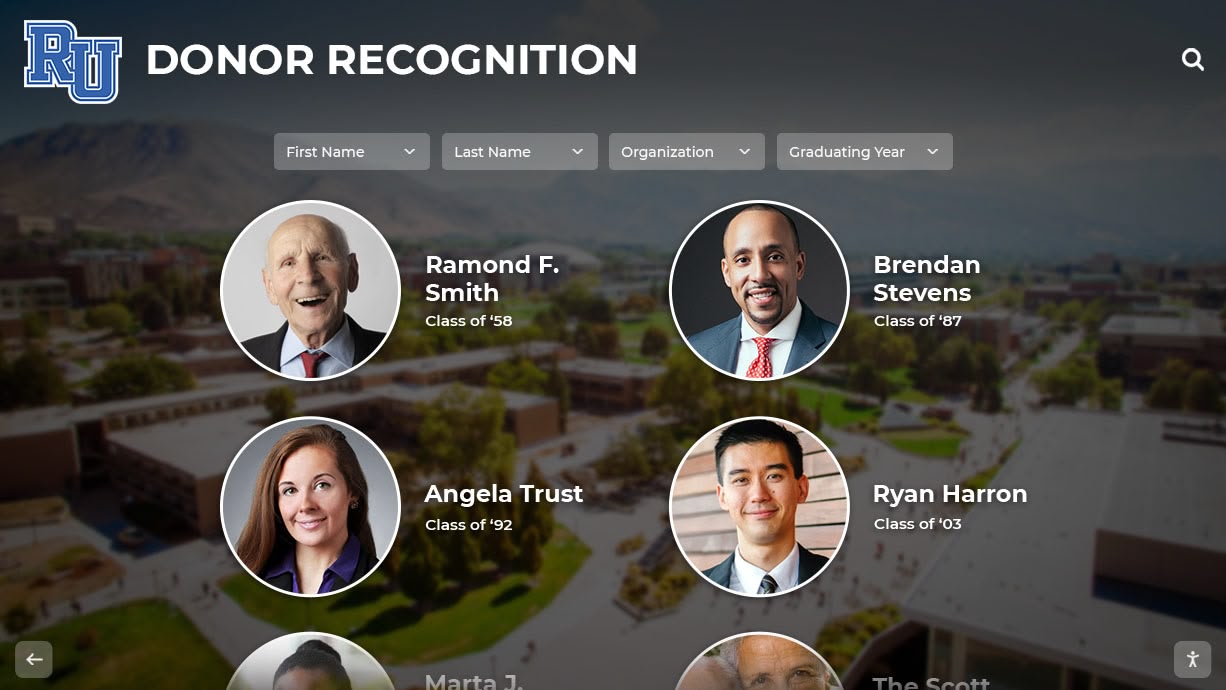For passionate history students seeking recognition for their academic excellence, meaningful connections with fellow scholars, and opportunities to deepen their engagement with historical study, Phi Alpha Theta represents the premier national honor society dedicated exclusively to undergraduate and graduate history achievement. With 970 chapters across the United States and an international presence spanning multiple countries, this prestigious organization has honored over 400,000 members since its founding in 1921, creating a vibrant community of historians, educators, researchers, and history enthusiasts committed to scholarly excellence and historical understanding.
Yet many qualified history students remain unaware of Phi Alpha Theta’s existence on their campuses or struggle to locate chapter information, missing valuable opportunities for recognition, networking, research support, scholarship access, and professional development that membership provides. Finding your institution’s chapter, understanding eligibility requirements, navigating the application process, and maximizing membership benefits requires knowledge that many students lack during crucial undergraduate and graduate years when honor society participation delivers greatest value.
This comprehensive guide explores everything history students need to know about finding Phi Alpha Theta chapters, joining this distinguished honor society, understanding membership benefits, and leveraging recognition opportunities that celebrate historical scholarship while building foundations for academic and professional success. Whether you’re an undergraduate history major curious about honor society opportunities, a graduate student seeking scholarly community, or a faculty advisor exploring recognition options for exceptional students, these resources provide practical frameworks for connecting with Phi Alpha Theta and maximizing the honor society experience.
Why Phi Alpha Theta Membership Matters for History Students
Phi Alpha Theta membership transcends simple resume enhancement, offering genuine scholarly community, research funding opportunities, conference presentation platforms, publication venues for undergraduate and graduate research, networking connections across history professions, and permanent recognition of academic excellence in historical study. The organization provides tangible benefits including competitive scholarships, travel grants for research and conferences, opportunities to publish in The Historian journal, access to exclusive academic events, and connections with history faculty, graduate programs, and potential employers who value demonstrated commitment to historical scholarship. For institutions celebrating honor society achievements, solutions like Rocket Alumni Solutions enable comprehensive recognition of Phi Alpha Theta inductees alongside other academic honors, creating engaging displays that inspire current students while preserving institutional academic legacy permanently.
Understanding Phi Alpha Theta: History and Mission
Before exploring how to find chapters, understanding Phi Alpha Theta’s origins, mission, and organizational structure provides essential context for appreciating what membership represents and why this particular honor society maintains prestige within academic history communities.
Founding and Historical Development
Phi Alpha Theta originated in 1921 at the University of Arkansas in Fayetteville when history professor Nels Cleven founded the organization to recognize and encourage excellence in historical study at undergraduate and graduate levels. Originally established as a local honor society, Phi Alpha Theta expanded regionally throughout the 1920s before achieving national recognition and growth during subsequent decades as more institutions established chapters recognizing student historical scholarship.
The organization’s name derives from Greek letters Phi (Φ), Alpha (Α), and Theta (Θ), representing the initials of the society’s motto in Greek. Throughout its century-long history, Phi Alpha Theta has maintained focus on its founding principles: recognizing academic excellence, promoting historical research and publication, fostering scholarly community among history students and faculty, and encouraging professional development preparing members for careers in history, education, research, public history, and related fields.

Today, Phi Alpha Theta operates as the largest honor society dedicated to a single academic discipline, with approximately 9,000 new members inducted annually across nearly 1,000 active chapters. The organization maintains national headquarters at the University of South Florida, publishes the academic journal The Historian, sponsors competitive research awards and scholarships, and organizes biennial national conferences bringing together student historians and professional scholars.
Organizational Structure and Chapter Operations
Phi Alpha Theta operates through a federated structure combining national organization oversight with substantial local chapter autonomy, enabling chapters to develop programming suited to specific institutional contexts while maintaining consistent membership standards and recognition criteria across all locations.
National Organization: The national Phi Alpha Theta organization, headquartered at the University of South Florida, establishes membership standards, coordinates scholarship and award programs, publishes The Historian journal, organizes biennial conferences, maintains chapter support resources, oversees new chapter development, and provides coordination ensuring consistency across the honor society’s extensive chapter network.
Regional Districts: Chapters organize into geographic regions facilitating regional conferences, collaborative programming, and shared resources among geographically proximate institutions. Regional structures enable smaller-scale gatherings more accessible than national conferences while maintaining connections extending beyond individual campus chapters.
Local Chapters: Individual campus chapters represent Phi Alpha Theta’s operational foundation, conducting membership selection, organizing local programming including lectures and research presentations, supporting student research initiatives, nominating members for national awards and scholarships, and creating scholarly community within specific institutional contexts. Chapters receive designation combining Greek letters (Alpha, Beta, Gamma, etc.) with institutional location, such as “Epsilon-Upsilon Chapter at Pennsylvania State University.”
Faculty advisors, typically history department professors, provide chapter guidance, ensure compliance with national standards, mentor student officers who manage day-to-day operations, and create connections between undergraduate/graduate members and broader historical profession. Strong chapters maintain active programming throughout academic years, creating vibrant communities extending beyond simple honor roll recognition.
Finding Phi Alpha Theta Chapters: Comprehensive Methods
Locating Phi Alpha Theta chapters requires understanding available resources and navigating both national organization tools and local campus information systems.
Official Phi Alpha Theta Chapter Locator
The most authoritative resource for finding Phi Alpha Theta chapters remains the official organization website’s dedicated chapter search functionality. The Phi Alpha Theta national organization maintains a comprehensive Chapter Locator tool at phialphatheta.org/chapter-locator/ enabling students to search for active chapters by institution name, geographic location, or chapter designation.
Using the Official Chapter Locator:
Navigate to the Phi Alpha Theta website (phialphatheta.org) and access the “Chapters” section or Chapter Locator tool from the main navigation menu. Search functionality typically allows multiple approaches: searching by college or university name returns chapters at specific institutions, browsing by state or region displays all chapters within geographic areas, and viewing complete chapter directories organized alphabetically or regionally provides comprehensive listings.

Chapter listings typically include institution name and location, chapter designation (Greek letter combination), contact information for faculty advisors when available, and sometimes chapter websites or social media links providing additional local information. The official directory represents the most current and accurate chapter information, as national headquarters maintains these listings based on active chapter status and regular updates from institutional advisors.
When searching the official directory, confirm chapter status indicates “active” rather than “inactive” or “dormant,” as some institutions may have historical chapters no longer operating. Active status ensures current membership opportunities rather than discovering defunct chapters no longer accepting new members or organizing programming.
Campus Resources and History Department Inquiries
Beyond national resources, local campus information systems and direct history department contact often provide quickest paths to chapter information and membership details specific to your institution.
History Department Websites: Most institutions with active Phi Alpha Theta chapters feature honor society information on history department websites, typically within undergraduate or graduate program sections describing student organizations, academic opportunities, or honors and awards. Department websites often provide chapter-specific contact information, current officer names, meeting schedules, and application procedures unique to local chapters.
Navigate to your institution’s history department website and explore sections titled “Student Organizations,” “Honors and Awards,” “Academic Opportunities,” or similar categories likely to reference honor societies. Some departments maintain dedicated Phi Alpha Theta pages with comprehensive local chapter information including membership criteria, application timelines, chapter activities, and contact details for faculty advisors or student officers.
Direct Faculty Advisor Contact: When online information proves limited or outdated, directly contacting history department administrators, undergraduate advisors, or history faculty members yields reliable information about Phi Alpha Theta presence and membership processes. Email the department chair, undergraduate program coordinator, or general department inquiry address asking about Phi Alpha Theta chapter status, faculty advisor identity, and membership application procedures.
Faculty advisors serve as primary Phi Alpha Theta contacts at most institutions, managing membership applications, coordinating induction ceremonies, organizing chapter programming, and maintaining connections with national organization. Identifying and contacting the faculty advisor provides most direct path to accurate, current information about membership opportunities at specific institutions.
Student Organization Directories and Campus Involvement Offices
Colleges and universities typically maintain comprehensive student organization directories listing all registered campus groups including academic honor societies, cultural organizations, service groups, and special interest clubs. These directories often prove more current than department websites for basic chapter existence confirmation and contact information.
Campus Involvement Office: Most institutions operate offices dedicated to student organization registration, support, and coordination—commonly titled Student Activities, Campus Involvement, Student Life, or similar names. These offices maintain official lists of registered student organizations typically accessible through online directories searchable by organization type, academic focus, or keyword.
Search campus student organization directories using terms like “Phi Alpha Theta,” “honor society,” “history,” or “academic organizations.” Directory listings typically include organization description, meeting information, contact details for current student leaders, and sometimes links to organization websites or social media accounts providing additional information about activities and membership.

Registration status in student organization databases confirms chapter active status and provides current academic year contact information, ensuring you reach currently active members and advisors rather than outdated contacts who may no longer be involved with chapter operations.
Social Media and Online Presence
Contemporary Phi Alpha Theta chapters frequently maintain active social media presence through platforms including Facebook, Instagram, Twitter/X, and LinkedIn, using these channels to communicate with members, promote events, share research opportunities, and recruit new members during application periods.
Search social media platforms using your institution name combined with “Phi Alpha Theta” to locate official chapter accounts. Verified or clearly institutional accounts (rather than individual member profiles) provide reliable information about chapter activities, meeting announcements, membership recruitment timelines, and contact methods for inquiries about joining.
Social media presence often proves more current than static websites for immediate questions about upcoming events, application deadlines, or current officer contact information. Many chapters post membership application announcements through social media channels, making these platforms valuable for students watching for recruitment opportunities during academic terms when chapters typically accept new members.
Phi Alpha Theta Membership Requirements and Eligibility
Understanding membership criteria before pursuing application ensures realistic expectations and helps students recognize when they qualify for honor society consideration.
Academic Performance Standards
Phi Alpha Theta maintains rigorous academic standards ensuring membership represents genuine scholarly achievement while remaining accessible to strong students rather than exclusively top performers at each institution.
Undergraduate Membership Requirements: Undergraduate students seeking Phi Alpha Theta membership must meet specific criteria established by national organization and typically include:
- Completion of minimum 12 semester hours (or equivalent quarter hours) in history coursework
- Minimum 3.1 grade point average in all history courses
- Minimum 3.0 cumulative grade point average across all coursework
- Completion of sufficient coursework to rank in upper 35% of class (typically junior or senior standing)
- Good academic and disciplinary standing at institution
These standards ensure members demonstrate consistent strong performance specifically in historical study while maintaining solid overall academic records. The 3.1 GPA requirement in history courses recognizes that honor society membership should reflect discipline-specific excellence, not just general academic achievement that might occur despite rather than through historical scholarship.

Graduate Student Membership: Graduate students in history or closely related fields typically qualify for membership through different criteria recognizing advanced study contexts:
- Completion of minimum 12 graduate semester hours in history or related fields
- Minimum 3.5 graduate grade point average
- Demonstrated commitment to historical research or related scholarly work
- Good academic and professional standing at institution
Graduate membership standards reflect higher performance expectations appropriate to advanced study while recognizing that graduate programs involve different assessment methods and typically maintain higher baseline grade standards than undergraduate education.
Faculty and Professional Membership: History faculty, professional historians, and individuals with terminal degrees in history may qualify for membership through professional channels recognizing career achievement in historical scholarship, teaching, or related fields. Faculty membership criteria vary but generally require demonstrated professional accomplishment in history or history education.
Chapter-Specific Additional Requirements
While national organization establishes baseline membership standards, individual chapters maintain autonomy to implement additional requirements suited to local contexts, though these supplemental criteria cannot relax national minimum standards.
Some chapters establish higher GPA thresholds for competitive membership when application volume exceeds capacity, require attendance at chapter meetings or history department events demonstrating engagement beyond classroom performance, implement interview or essay components enabling assessment of scholarly commitment and community fit, or charge chapter dues funding local programming, conference travel support, or social activities beyond national membership fees.
Understanding chapter-specific requirements necessitates reviewing local application materials or contacting faculty advisors, as these additional criteria significantly affect membership accessibility and application procedures at specific institutions.
Institutions implementing comprehensive academic recognition programs often include Phi Alpha Theta membership among honors celebrated through digital recognition displays, creating visible validation of honor society achievement that inspires younger students while preserving institutional academic heritage.
Application Process and Membership Timeline
Joining Phi Alpha Theta typically follows structured processes aligned with academic calendars, though specific procedures and timelines vary across chapter contexts.
Application Windows and Recruitment Periods
Most Phi Alpha Theta chapters conduct membership recruitment during specific periods each academic year, commonly once or twice annually during fall and spring semesters. Typical recruitment patterns include:
Fall Recruitment (September-November): Many chapters conduct primary membership recruitment early in fall semester, enabling new juniors who recently achieved eligibility through accumulated coursework to join while providing full academic year for member engagement in chapter activities, research presentations, and conference opportunities.
Spring Recruitment (February-April): Additional or alternative recruitment during spring semester accommodates students who achieved eligibility through fall semester performance, transfer students who arrived mid-year, and chapters preferring single annual induction ceremonies during spring term aligned with end-of-year academic celebrations.
Application deadlines typically occur 4-6 weeks before induction ceremonies, allowing time for application review, membership approval, induction preparation, and coordination with broader campus events or department activities. Missing application deadlines usually means waiting until next recruitment cycle, making awareness of chapter-specific timelines important for timely membership opportunities.

Some chapters maintain rolling admission accepting applications whenever students achieve eligibility and conducting inductions when cohort sizes justify ceremonies, though structured recruitment periods remain more common for operational efficiency and ceremonial traditions.
Application Materials and Documentation
Membership applications typically require documentation demonstrating eligibility through verified academic performance records and supporting materials enabling chapter leadership to assess applicant qualifications.
Standard Application Components:
- Official or Unofficial Transcripts: Academic records documenting GPA in history courses and overall cumulative GPA, credit hours completed in history, and class standing or academic progress
- Membership Application Form: Chapter-provided forms collecting biographical information, contact details, history coursework completed, academic interests, and sometimes brief statements about research interests or career goals
- Faculty Recommendations: Some chapters require letters from history faculty attesting to academic quality, scholarly potential, or personal character, particularly for graduate student applications or competitive undergraduate chapters
- Application Fees: National membership requires one-time initiation fees (typically $60-75) covering lifetime Phi Alpha Theta membership, certificate production, and national organization support; some chapters charge additional local dues funding chapter operations and programming
Application procedures increasingly occur through online portals, email submissions to faculty advisors, or campus student organization management systems, though some chapters maintain traditional paper applications submitted to history department offices or faculty advisor mailboxes.
Providing complete, accurate application materials demonstrating clear eligibility through documented academic performance facilitates prompt application review and membership approval, while incomplete applications may experience delays or require follow-up requests for missing documentation.
Induction Ceremonies and Member Recognition
Phi Alpha Theta chapters typically conduct formal induction ceremonies honoring new members, recognizing their academic achievement, and integrating them into honor society community through traditional rituals emphasizing scholarly values and historical study commitment.
Ceremony Elements: Induction ceremonies commonly include formal welcome by faculty advisors or chapter officers, reading of Phi Alpha Theta mission and values, administration of membership pledge affirming commitment to historical scholarship and honor society principles, presentation of membership certificates documenting official induction, and sometimes keynote addresses by distinguished historians, faculty members, or alumni.
Many chapters coordinate inductions with department award ceremonies, history program celebrations, or campus-wide honors convocations, creating broader recognition contexts that involve families, department communities, and university leadership. These combined events elevate membership significance while enabling efficient resource use and maximizing attendance.
For institutions implementing digital recognition displays, Phi Alpha Theta induction represents perfect content for ongoing academic achievement celebration through interactive platforms showcasing honor society members alongside other scholarly accomplishments, creating comprehensive recognition systems that inspire current students through visible examples of academic excellence.
Benefits of Phi Alpha Theta Membership
Understanding tangible and intangible membership benefits helps students appreciate value beyond simple resume enhancement and motivates active engagement with honor society opportunities.
Research Funding and Scholarship Opportunities
Phi Alpha Theta provides substantial financial support for student historical research, conference travel, and academic development through competitive scholarships and grants available exclusively to members.
Undergraduate Research Grants: The organization offers multiple research grant programs supporting original historical investigation, archival research, primary source analysis, and field work required for thesis projects or independent studies. Awards typically range from several hundred to several thousand dollars depending on project scope and grant category.
Competitive research proposals evaluated by faculty review committees consider research significance, methodological rigor, feasibility, and contribution to historical knowledge. Successfully securing Phi Alpha Theta research funding provides not just financial support but prestigious recognition strengthening graduate school applications, research presentations, and professional portfolios demonstrating commitment to serious historical scholarship.

Conference Travel Funding: Phi Alpha Theta regional and national conferences provide platforms for student research presentation, yet travel expenses create barriers for many student attendees. The organization offers travel grants helping members attend conferences where they present research, participate in professional development sessions, network with fellow student historians and faculty, and experience scholarly community extending beyond individual campuses.
Academic Scholarships: Various competitive scholarships support outstanding Phi Alpha Theta members demonstrating exceptional historical scholarship, research potential, and commitment to professional history careers. These awards, funded through endowments and organizational resources, provide direct financial support for educational expenses while recognizing academic excellence through prestigious honors enhancing recipients’ academic credentials.
Scholarship application typically requires essay submissions, faculty recommendations, research portfolios, and academic transcripts demonstrating sustained historical excellence. Award recipients gain recognition extending beyond individual institutions through national organization publicity and permanent organizational records.
Publication Opportunities in The Historian
Phi Alpha Theta publishes The Historian, a peer-reviewed academic journal featuring scholarly articles, book reviews, and historiographical essays contributing to professional historical discourse. The journal provides rare undergraduate and graduate student publication opportunities, as most academic history journals accept submissions exclusively from professional historians holding terminal degrees and academic positions.
Student members may submit research papers for consideration through competitive peer review evaluation assessing scholarship quality, argument strength, methodological rigor, and contribution to historical understanding. Successfully publishing in The Historian provides tremendous credential for graduate school applications, representing authentic peer-reviewed publication rarely achievable during undergraduate education.
Even when submissions don’t achieve publication, the peer review process provides valuable feedback from expert historians, helping student researchers strengthen work, understand professional scholarship standards, and develop revision skills essential for academic and professional success. The opportunity to submit work for serious scholarly evaluation, regardless of outcome, represents valuable professional development preparing students for research expectations in graduate programs and history careers.
Conference Presentation and Networking
Phi Alpha Theta regional and biennial national conferences create premier venues for student history research presentation, professional networking, and scholarly community building that bridges undergraduate education and professional history careers.
Regional Conferences: Most Phi Alpha Theta chapters participate in regional conferences organized by geographic districts, bringing together student historians from multiple institutions for concentrated research presentation sessions, faculty-led workshops, graduate school information sessions, and networking opportunities with peers from other campuses pursuing similar historical interests.
Regional conferences typically occur annually during spring semesters at rotating host institutions, providing accessible opportunities for conference participation without extensive travel requirements or costs associated with national meetings. Many students deliver their first academic conference presentations at regional Phi Alpha Theta meetings in supportive environments emphasizing student development rather than hyper-competitive professional contexts.
Presentation experience develops public speaking skills, strengthens research through preparing polished talks and responding to questions, builds confidence for future conference participation, and creates CV/resume entries demonstrating scholarly engagement beyond classroom requirements. For students considering graduate study, conference presentations provide essential experience and concrete evidence of research capability that strengthens graduate program applications.

National Conferences: The biennial Phi Alpha Theta national conference represents the organization’s flagship event, attracting hundreds of student historians and faculty advisors for multi-day gatherings featuring research presentations, keynote addresses from distinguished historians, professional development workshops, graduate school fairs, networking receptions, and social events celebrating historical scholarship.
National conferences provide unparalleled opportunities to meet student historians from across the country and internationally, discover history programs and career paths through exhibitor interactions and graduate school recruitment, hear leading historians discuss contemporary research and historiographical debates, and experience scholarly community scale impossible within individual campus contexts.
Students presenting research at national conferences gain prestigious credentials recognized by graduate programs and employers, demonstrating ambition and capability extending well beyond minimum degree requirements. Conference attendance alone provides value through exposure to diverse historical research, methodologies, and professional opportunities expanding perspectives beyond familiar campus environments.
Career Development and Graduate School Preparation
Phi Alpha Theta membership signals serious commitment to historical scholarship recognized by graduate programs, fellowship committees, and employers seeking candidates with demonstrated academic excellence and professional potential.
Graduate School Applications: Competitive history graduate programs seek applicants demonstrating genuine scholarly commitment, research experience, and intellectual community engagement beyond simple coursework completion and high grades. Phi Alpha Theta membership provides concrete evidence of these qualities, while research presentations, The Historian publications, and conference participation create standout application materials separating competitive candidates from less engaged applicants.
Faculty recommendation letters gain strength when professors can reference honor society membership, research awards, and conference presentations demonstrating student initiative and scholarly maturity. Many graduate program faculty serve as Phi Alpha Theta advisors at their institutions, understanding firsthand what membership represents and valuing these credentials during application review processes.
Professional Networking: Phi Alpha Theta creates networking opportunities connecting student members with faculty mentors, professional historians, graduate students, and fellow undergraduates who share historical interests and career aspirations. These connections provide informal mentorship, graduate program recommendations, job leads, collaboration opportunities, and sustained professional relationships extending beyond undergraduate years.
Universities implementing comprehensive alumni recognition programs often feature Phi Alpha Theta membership among honors celebrated for distinguished graduates, creating visible connections between undergraduate achievement and subsequent professional success while demonstrating institutional pride in academic excellence.
Maximizing Phi Alpha Theta Membership Value
Simply joining Phi Alpha Theta provides baseline benefits, but active engagement amplifies membership value through research opportunities, leadership development, and scholarly community participation.
Active Chapter Participation
Regular attendance at chapter meetings, participation in sponsored lectures and events, volunteering for chapter activities and service projects, and contributing to chapter governance and programming create rich experiences extending far beyond membership credentials alone.
Strong chapters organize engaging programming including guest speaker presentations from faculty, visiting historians, or history profession practitioners, field trips to historical sites, museums, archives, or cultural institutions, research presentation sessions where members share current projects and receive feedback, social gatherings building community among history students, and service activities supporting history education, preservation, or public history in local communities.

Active members gain maximum value from programming exposure, networking opportunities, and scholarly community that makes honor society membership meaningful rather than simple resume line. Faculty advisors and officers notice engaged members when opportunities arise for research mentorship, recommendation letters, leadership positions, and special opportunities requiring reliable, committed individuals.
Pursuing Research and Publication Opportunities
Take full advantage of Phi Alpha Theta’s distinctive emphasis on supporting student research through competitive grants, conference presentations, and publication venues rarely accessible to undergraduates through other channels.
Apply for research grants supporting thesis work, independent studies, or original research projects requiring archival access, travel, or resources beyond standard coursework budgets. Even unsuccessful grant applications provide valuable experience writing research proposals, articulating project significance, and understanding competitive review processes preparing students for graduate school and professional contexts where grant writing represents essential skill.
Submit completed research papers to The Historian for publication consideration, gaining peer review experience and potential publication credentials few undergraduate researchers achieve. Develop conference presentation proposals for regional and national Phi Alpha Theta meetings, building public speaking capabilities and research communication skills while gaining visibility within student historian communities and among faculty evaluators.
Chapter Leadership and Organizational Development
Seek leadership positions within chapter governance, including officer roles (president, vice president, secretary, treasurer), committee participation planning events and programs, or volunteer coordination supporting chapter activities and operations.
Leadership experience develops skills beyond historical knowledge—event planning, budget management, communication, collaboration, and organizational coordination valued by graduate programs and employers across career fields. Serving in chapter leadership demonstrates initiative, responsibility, and commitment extending beyond personal benefit toward community development and service to fellow students.
Officer experience also creates closer faculty mentor relationships, as advisors work directly with student leaders on chapter governance, programming, and problem-solving. These enhanced faculty connections yield stronger recommendation letters, research opportunities, and career guidance that benefits members long after graduation.
Recognition of chapter leadership through institutional academic achievement displays validates student contributions while inspiring younger students to pursue similar engagement with honor societies and academic organizations that enrich educational experiences.
Starting New Phi Alpha Theta Chapters
Students at institutions lacking Phi Alpha Theta chapters can petition for new chapter establishment, bringing this prestigious honor society to campuses where history students currently lack organized recognition and community dedicated to historical scholarship.
Eligibility and Requirements for New Chapters
Phi Alpha Theta welcomes new chapter petitions from accredited colleges and universities offering substantial history programs with sufficient faculty and student populations to sustain active honor society operations. Typical requirements for new chapter establishment include:
Institutional Qualifications: Regionally accredited four-year colleges or universities, established history departments offering degree programs or substantial history coursework, faculty willing to serve as chapter advisors providing ongoing guidance and oversight, and administrative support from history department chairs or college leadership endorsing chapter establishment.
Student Interest and Membership Base: Minimum eligible student population meeting membership criteria (typically 10-15 students) available for charter membership, demonstrated student interest in historical scholarship and honor society participation beyond simple credential collection, and willingness to organize active programming and chapter operations rather than functioning as purely honorary designation without substantive activities.

Faculty Advisor Commitment: Dedicated faculty member (typically history department professor) willing to serve as primary chapter advisor, participating in national Phi Alpha Theta advisor network, attending advisor training and conferences when possible, and providing consistent support ensuring chapter sustainability across student leadership transitions.
Chapter Petition Process
Establishing new Phi Alpha Theta chapters follows structured procedures outlined on the national organization website under “How To Start A Chapter” resources providing comprehensive guidance for students and faculty navigating petition processes.
Initial Steps: Contact Phi Alpha Theta national headquarters expressing interest in establishing campus chapter, research requirements and expectations thoroughly understanding commitment involved, identify faculty advisor willing to support chapter development, and assess student interest confirming sufficient membership base for viable chapter operations.
Petition Development: Compile required documentation including formal petition letter explaining why institution should receive chapter, list of charter members meeting membership criteria with academic records demonstrating eligibility, faculty advisor commitment letter outlining planned support, and department chair endorsement confirming administrative approval and support.
National Organization Review: Submit complete petition materials to Phi Alpha Theta headquarters for evaluation by national organization leadership. Review process assesses institutional suitability, student eligibility verification, faculty advisor appropriateness, and likelihood of successful, sustainable chapter development. Approved petitions receive chapter designation and authorization to conduct charter member induction initiating official chapter operations.
Successfully establishing new chapters creates lasting institutional legacy providing future history students with recognition, community, and opportunities that enhance educational experiences while strengthening history department academic culture and student engagement.
Phi Alpha Theta and Institutional Recognition Programs
For colleges and universities implementing comprehensive academic recognition initiatives, Phi Alpha Theta membership represents prestigious achievement worthy of permanent celebration alongside other scholarly honors, creating visible validation that inspires current students while preserving institutional academic heritage.
Digital Recognition of Honor Society Achievement
Traditional recognition approaches—brief assembly mentions, paper certificates filed away, or limited physical plaques—fail to adequately celebrate honor society membership significance or create lasting engagement that extends recognition impact beyond induction ceremonies. Modern digital recognition platforms enable comprehensive celebration of Phi Alpha Theta members through engaging displays that honor achievement appropriately while serving multiple institutional priorities.
Interactive touchscreen displays and web-accessible recognition platforms can showcase complete profiles for every Phi Alpha Theta inductee including high-resolution member photographs, graduation years and major fields, induction dates and chapter designations, research interests and thesis topics, post-graduation achievements and career paths, and conference presentations or publications during membership.

This rich content transforms honor society recognition from simple name listings into compelling experiences that help audiences understand member achievements, inspire current students through visible examples of accessible excellence, create pride among families and institutional communities, and preserve complete academic achievement history across generations.
Solutions like Rocket Alumni Solutions provide purpose-built platforms specifically designed for educational recognition rather than generic digital signage requiring extensive customization. These specialized systems deliver intuitive content management enabling staff to easily add new inductees each semester, professional templates ensuring consistent, polished presentation quality, unlimited capacity accommodating decades of honor society history without space constraints, and searchable databases allowing visitors to explore members by year, major, or name.
Integration with Broader Academic Recognition Systems
Most effective institutional recognition celebrates comprehensive academic excellence rather than fragmenting honors into isolated displays that minimize overall impact. Phi Alpha Theta membership naturally integrates within broader recognition frameworks celebrating diverse scholarly achievement through unified presentation.
Digital platforms enable recognition systems that honor multiple dimensions of academic success: honor roll achievement recognizing consistent strong performance, honor society membership acknowledging discipline-specific excellence, academic competition success celebrating intellectual challenge-seeking, scholarship awards demonstrating tangible merit recognition, and undergraduate research validating scholarly capability and creative contribution.
Comprehensive recognition ensuring all forms of academic achievement receive appropriate visibility creates inclusive cultures where varied students see pathways to recognition matching diverse talents and interests. History students see Phi Alpha Theta membership celebrated equally to science honor societies, engineering competitions, or business scholarships, communicating institutional values that genuinely honor scholarship across all disciplines rather than privileging certain fields through disproportionate recognition.
Programs implementing interactive academic displays report increased student awareness of honor society opportunities, higher membership application rates as recognition visibility inspires younger students, and strengthened academic culture as visible achievement celebration reinforces institutional priorities and values around scholarly excellence.
Supporting Chapter Programming and Member Engagement
Beyond individual member recognition, digital platforms can support active Phi Alpha Theta chapter programming by promoting upcoming lectures and events through campus displays, showcasing student research presentations with presentation abstracts and presenter profiles, celebrating chapter service projects and community engagement, highlighting conference attendance and research awards, and creating historical chapter documentation preserving organizational legacy across student leadership transitions.
This programming visibility extends impact beyond active members, engaging broader student populations who may become interested in history through exposure to chapter activities, alerting faculty to student research and engagement deserving mentorship attention, demonstrating department vitality to prospective students and their families during campus visits, and creating institutional pride in robust academic culture supporting student scholarly development.
For departments seeking to strengthen honor society participation and programming, visible recognition creates virtuous cycles where celebration inspires engagement, engagement generates achievement worthy of recognition, and recognition validates effort while motivating continued participation across successive student generations.
Common Questions About Finding and Joining Phi Alpha Theta
Students exploring Phi Alpha Theta membership frequently encounter similar questions about eligibility, application processes, and membership value. Addressing these common concerns provides clarity supporting informed decisions about honor society participation.
“Does my university have a Phi Alpha Theta chapter?”
The most reliable method for determining chapter presence involves checking the official Phi Alpha Theta Chapter Locator tool at phialphatheta.org/chapter-locator/, which maintains current listings of all active chapters organized by institution and geographic region. Additionally, contact your history department directly via email or office visit, asking specifically about Phi Alpha Theta chapter status and faculty advisor contact information.
If initial searches suggest no active chapter, confirm whether dormant chapters might reactivate or whether interest exists for establishing new chapters if sufficient student and faculty support can be organized. Some institutions have historical chapters that became inactive but could restart with renewed interest and committed faculty advising.

“What if I barely miss GPA requirements?”
Phi Alpha Theta maintains minimum standards ensuring membership represents genuine academic achievement, and chapters cannot admit students failing to meet national organization criteria regardless of other qualifications or circumstances. Students slightly below GPA thresholds should focus on improving academic performance in subsequent history courses, raising their history GPA to required 3.1 level or overall GPA to 3.0 minimum.
One or two strong semester performances can often raise GPAs sufficiently to achieve eligibility, making temporary ineligibility surmountable through sustained effort. Faculty advisors can provide guidance about how many credit hours of specific grades would raise GPAs to eligible levels, helping students create concrete improvement plans.
Remember that membership provides greatest value during junior and senior years when research opportunities, conference participation, and graduate school preparation matter most. Achieving eligibility by junior year still allows substantial time to maximize membership benefits even if freshman and sophomore performance initially created ineligibility.
“Is membership worth the cost?”
Membership fees (typically $60-75 for one-time national initiation fee plus possible chapter dues of $10-30 annually) represent modest investment compared to benefits including research grant eligibility potentially worth hundreds or thousands of dollars, conference travel funding supporting professional development, publication opportunities in The Historian creating credentials worth far more than financial cost, graduate school application enhancement potentially affecting admission and funding decisions, and lifetime membership providing permanent credentials and networking access extending throughout professional careers.
For students seriously interested in history, graduate study, or careers leveraging historical knowledge and analytical skills, Phi Alpha Theta membership delivers tangible value far exceeding relatively minor initiation costs. However, students viewing honor society purely as resume enhancement without genuine historical interest or engagement intent may find limited value justifying even modest fees.
Maximum membership value comes from active participation utilizing research opportunities, attending conferences, engaging with chapter programming, and building scholarly community—passive membership providing only credential without engagement delivers minimal return regardless of cost.
“Can graduate students join if they weren’t members as undergraduates?”
Yes, graduate students meeting current eligibility criteria may join Phi Alpha Theta during graduate study regardless of undergraduate honor society participation. Many students attend undergraduate institutions without chapters or fail to meet eligibility criteria during undergraduate years due to lower early academic performance before maturing as scholars during later college years.
Graduate membership provides all standard benefits including research funding, conference participation, publication opportunities, and professional networking. Graduate student members often assume chapter leadership roles, present research at conferences, contribute to The Historian, and strengthen chapters through mentoring undergraduate members and bringing advanced research experience to chapter communities.
The Broader Value of Academic Honor Societies
While this guide focuses specifically on Phi Alpha Theta, understanding broader contexts about academic honor societies helps students appreciate distinctive value that discipline-specific organizations provide compared to general honor societies or purely social Greek organizations.
Discipline-Specific vs. General Honor Societies
Academic honor societies fall into distinct categories: discipline-specific societies like Phi Alpha Theta focusing exclusively on students within particular academic fields, and general honor societies like Phi Beta Kappa, Phi Kappa Phi, or Golden Key recognizing overall academic achievement across all majors and disciplines.
Discipline-specific honor societies provide specialized benefits including focused scholarly community connecting students sharing specific academic interests, research funding and publication opportunities aligned with particular discipline methodologies and questions, conference programming featuring cutting-edge scholarship within specific fields, and networking with faculty, graduate programs, and employers specifically interested in students from particular academic disciplines.

For students passionate about history and considering history-related careers or graduate study, Phi Alpha Theta’s discipline-specific focus delivers greater value than general academic honor societies lacking specialized programming, research support, and professional networks within historical scholarship communities.
Authentic vs. Questionable Honor Societies
Unfortunately, some organizations use “honor society” designation for commercial operations offering minimal genuine value while charging substantial membership fees. Legitimate honor societies share characteristics distinguishing them from questionable commercial operations: accreditation by Association of College Honor Societies (ACHS) confirming quality standards compliance, long operational history demonstrating sustainability and legitimacy, substantial membership benefits including research funding, scholarships, and genuine professional programming, active chapter operations involving real faculty oversight rather than purely online commercial ventures, and institutional faculty/administrator involvement rather than external commercial companies recruiting students directly.
Phi Alpha Theta’s ACHS accreditation, century-long history, substantial research funding and publication programs, and genuine faculty advisor involvement at nearly 1,000 campus chapters confirm legitimacy as authentic academic honor society providing real value rather than simply selling membership credentials.
Students should research carefully before joining any honor society, confirming accreditation status, reviewing actual benefits and programming, checking whether campus faculty endorse the organization, and understanding that multiple honor society memberships may provide less value than active engagement with one or two legitimate, established societies aligned with genuine academic interests and career goals.
Conclusion: Connecting With History’s Scholarly Community
For history students demonstrating academic excellence and seeking meaningful scholarly community beyond classroom contexts, Phi Alpha Theta represents the premier honor society dedicated exclusively to recognizing and supporting historical scholarship at undergraduate and graduate levels. With 970 chapters across the United States and international locations, approximately 9,000 new members inducted annually, and over 400,000 lifetime members, this prestigious organization creates opportunities for research funding, conference presentation, publication in The Historian journal, professional networking, and scholarly community that enriches educational experiences while preparing students for graduate study and history-related careers.
Finding Phi Alpha Theta chapters requires navigating official organization resources including the national website’s Chapter Locator tool, consulting local campus resources through history department websites and student organization directories, and directly contacting history faculty advisors who manage chapter operations and membership processes. Understanding membership requirements—particularly minimum 3.1 GPA in history courses and 3.0 cumulative GPA for undergraduates—helps students recognize when they qualify and plan accordingly to achieve eligibility through strong academic performance in history coursework.
Active membership providing maximum value extends beyond simple credential collection, requiring genuine engagement with chapter programming, pursuit of competitive research grants and publication opportunities, conference presentation building scholarly communication capabilities, and leadership involvement developing organizational skills alongside historical knowledge. Students approaching Phi Alpha Theta membership as genuine scholarly community rather than resume enhancement alone experience profound benefits that shape educational trajectories and professional identities as historians, educators, researchers, and informed citizens valuing historical understanding.
For institutions celebrating academic excellence through modern recognition approaches, Phi Alpha Theta membership represents prestigious achievement worthy of permanent acknowledgment alongside other scholarly honors. Digital recognition platforms enable comprehensive celebration of honor society inductees through engaging displays featuring rich member profiles, searchable databases providing ongoing accessibility, and unlimited capacity preserving complete institutional honor society history across generations. These recognition systems inspire current students through visible examples of achievable excellence, validate member achievement through lasting institutional acknowledgment, and demonstrate genuine institutional commitment to celebrating comprehensive academic success across all disciplines and achievement types.
Whether you’re a history student exploring honor society opportunities, a faculty member advising chapters or considering establishing new campus presence, or an institutional leader implementing academic recognition programs celebrating scholarly excellence, Phi Alpha Theta represents a century-old tradition of honoring historical scholarship while supporting student research, fostering scholarly community, and preparing the next generation of historians, educators, and engaged citizens who understand how studying the past illuminates present challenges and future possibilities.
Ready to discover if your institution has a Phi Alpha Theta chapter? Visit the official Chapter Locator at phialphatheta.org/chapter-locator/, contact your history department, or explore campus student organization directories to begin your journey toward joining this distinguished community of student historians committed to excellence in historical scholarship and preserving the vital importance of studying, understanding, and sharing human history across all its complexity, diversity, and enduring significance.




































